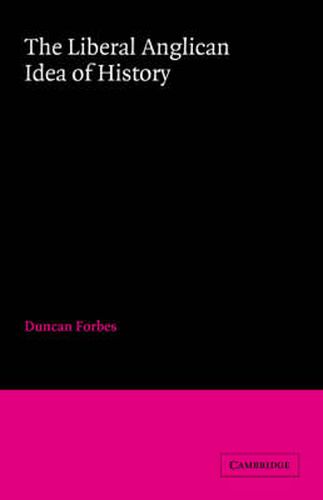Readings Newsletter
Become a Readings Member to make your shopping experience even easier.
Sign in or sign up for free!
You’re not far away from qualifying for FREE standard shipping within Australia
You’ve qualified for FREE standard shipping within Australia
The cart is loading…






This essay, which won the Prince Consort Prize for 1950, treats of the revolutionary change in historical writing that followed the entry into England, early in the nineteenth century, of the ideas of Vico and of the German historical school. Chiefly through Coleridge’s influence, eighteenth-century rationalist suppositions gave place in certain men to a fundamentally opposed, ‘Romantic’ philosophy, and so to a new kind of History. Mr. Forbes is particularly concerned with the part played in this revolution by the liberal Anglicans: Thomas Arnold, Headmaster of Rugby and Regius Professsor of Modern History at Oxford; Richard Whitely, Professor of Political Economy at Oxford and Archbishop of Dublin; Julius Charles Hare, disciple of Coleridge and translator (with Thirlwall) of Niebuhr’s History of Rome; Connop Thirlwall, Bishop of St David’s and author of the History of Greece; Henry Hart Milman, Professor of Poetry and Oxford and Dean of St Paul’s; Arthur Penrhyn Stanley, pupil and biographer of Thomas Arnold, and Dean of Westminster. They have elsewhere been studied in the compartments of ‘classical’ and ‘ecclesiastical’ history. But it is fundamental to their outlook on Church and State that for them no such compartments existed, and their idea of History as a whole has hitherto lacked an English historian. This essay does much more than clarify technical problems in one of the various ideas of History embraced in Professor Toynbee’s system. Mr. Forbes addresses his book to all students of nineteenth-century thought.
$9.00 standard shipping within Australia
FREE standard shipping within Australia for orders over $100.00
Express & International shipping calculated at checkout
This essay, which won the Prince Consort Prize for 1950, treats of the revolutionary change in historical writing that followed the entry into England, early in the nineteenth century, of the ideas of Vico and of the German historical school. Chiefly through Coleridge’s influence, eighteenth-century rationalist suppositions gave place in certain men to a fundamentally opposed, ‘Romantic’ philosophy, and so to a new kind of History. Mr. Forbes is particularly concerned with the part played in this revolution by the liberal Anglicans: Thomas Arnold, Headmaster of Rugby and Regius Professsor of Modern History at Oxford; Richard Whitely, Professor of Political Economy at Oxford and Archbishop of Dublin; Julius Charles Hare, disciple of Coleridge and translator (with Thirlwall) of Niebuhr’s History of Rome; Connop Thirlwall, Bishop of St David’s and author of the History of Greece; Henry Hart Milman, Professor of Poetry and Oxford and Dean of St Paul’s; Arthur Penrhyn Stanley, pupil and biographer of Thomas Arnold, and Dean of Westminster. They have elsewhere been studied in the compartments of ‘classical’ and ‘ecclesiastical’ history. But it is fundamental to their outlook on Church and State that for them no such compartments existed, and their idea of History as a whole has hitherto lacked an English historian. This essay does much more than clarify technical problems in one of the various ideas of History embraced in Professor Toynbee’s system. Mr. Forbes addresses his book to all students of nineteenth-century thought.